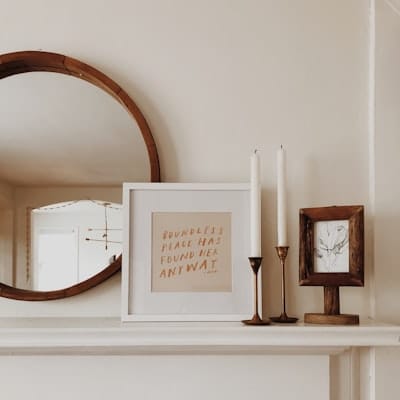Welcome to our blog post on understanding the need for home staging business insurance. If you're a home stager or considering starting your own home staging business, it's crucial to understand the risks involved and the importance of having proper insurance coverage.
Home staging is a rapidly growing industry, with more homeowners and real estate agents recognizing the value of staging a property to attract potential buyers. As a home stager, you are responsible for transforming a property into a visually appealing space that appeals to potential buyers. While this can be an exciting and rewarding profession, it's also important to be aware of the risks that come with it.
One of the most significant risks in the home staging business is the potential for damage or loss to the property you are staging. Accidents can happen, such as furniture being damaged during the staging process or items being stolen from the property. Without insurance, you could be held personally liable for the costs of repairing or replacing these items, which can be a significant financial burden.
Liability coverage is another essential aspect of insurance for home staging businesses. If a client or visitor is injured on the property during the staging process, you could be held responsible for their medical expenses and any legal claims that may arise. Having liability coverage can protect you from these potential financial liabilities.
Additionally, business interruption coverage is crucial for home stagers. If an unforeseen event, such as a natural disaster or a fire, occurs that prevents you from completing a staging project or forces you to temporarily close your business, business interruption insurance can provide financial assistance to cover lost income and ongoing expenses.
When it comes to insurance for home staging businesses, there are several types to consider. General liability insurance provides coverage for bodily injury, property damage, and personal injury claims. Professional liability insurance, also known as errors and omissions insurance, protects you from claims related to professional negligence or mistakes in your staging work. Commercial property insurance covers damage to your own business property, such as furniture, equipment, or inventory. Finally, workers' compensation insurance is essential if you have employees, as it covers medical expenses and lost wages in the event of a work-related injury or illness.
Choosing the right insurance for your home staging business requires careful consideration. Assessing your business risks, comparing insurance providers and policies, and understanding the cost versus coverage are all important factors to consider. It's also crucial to thoroughly understand any policy exclusions to ensure you have the necessary coverage for your specific business needs.
Once you have obtained insurance coverage for your home staging business, it's important to regularly review and update your policies to ensure they still meet your needs. Additionally, managing and documenting any claims that may arise is essential for a smooth claims process. Implementing risk management strategies, such as maintaining a safe work environment and adhering to industry best practices, can also help minimize potential risks.
In conclusion, having proper insurance coverage is vital for home staging businesses. It protects you from potential financial losses due to property damage, liability claims, or business interruptions. By understanding the risks involved and choosing the right insurance policies, you can safeguard your business and focus on providing exceptional staging services to your clients.
Introduction to Home Staging Business and Its Risks
Home staging has become an integral part of the real estate industry, with homeowners and real estate agents recognizing its impact on selling properties quickly and at higher prices. In essence, home staging involves preparing a property for sale by creating an appealing and marketable environment that appeals to potential buyers.
The goal of home staging is to showcase the property's best features and create an emotional connection with potential buyers. This is achieved through various techniques, including decluttering, rearranging furniture, adding decorative elements, and enhancing curb appeal. The ultimate aim is to present the property in its best possible light and help buyers envision themselves living in the space.
However, along with the rewards that come with a successful home staging business, there are also inherent risks to be aware of. Understanding these risks is essential for both aspiring and established home stagers to protect their businesses and ensure smooth operations.
One of the primary risks in the home staging business is the potential for damage or loss to the property being staged. Accidents can occur during the staging process, such as furniture being scratched, walls being damaged, or valuable items being broken. Additionally, there is a risk of theft or vandalism, especially if the property is vacant during the staging period. Without proper insurance coverage, home stagers could be held personally liable for the costs of repairing or replacing damaged or stolen items.
Liability is another significant risk in the home staging industry. As a home stager, you may have clients or other individuals visiting the staged property. If someone gets injured on the premises, such as slipping and falling or tripping over furniture, you could be held legally responsible for their medical expenses and any resulting legal claims. This can have severe financial implications if you are not adequately insured.
Furthermore, there is always the possibility of unforeseen events that can disrupt the home staging process or temporarily halt your business operations. Natural disasters, fires, or other emergencies can render a property unusable or force you to cancel staging projects. Without the proper insurance coverage, you may suffer significant financial losses due to lost income and ongoing expenses during these periods of interruption.
Understanding and acknowledging these risks is the first step in protecting your home staging business. By being aware of the potential pitfalls and challenges, you can take proactive measures to mitigate these risks and ensure the long-term success of your business. This includes obtaining the necessary insurance coverage, implementing risk management strategies, and adhering to industry best practices.
In the following sections, we will delve deeper into why insurance is essential for home staging businesses and explore the different types of insurance coverage available. We will also discuss how to choose the right insurance policies for your specific business needs and provide guidance on maintaining and reviewing your insurance coverage. So, let's continue our journey to understanding the need for home staging business insurance.
Why Insurance is Essential for Home Staging Business
Insurance is a fundamental aspect of running a home staging business. It provides essential protection against potential risks and liabilities that can arise during the course of your operations. Let's explore in more detail why insurance is crucial for home staging businesses.
Protection Against Damage or Loss
One of the primary reasons why insurance is essential for home staging businesses is to protect against damage or loss to the property being staged. Accidents can happen, no matter how careful you are during the staging process. Furniture can get scratched, walls can be damaged, or valuable items can be broken. Without insurance coverage, you could be held personally responsible for the costs of repairs or replacements, which can be financially devastating.
By having insurance that covers property damage, you can mitigate the financial risks associated with accidents or unforeseen events. This coverage ensures that you are protected and can cover the costs of repairing or replacing damaged items, allowing you to continue operating your business without incurring significant out-of-pocket expenses.
Liability Coverage
Liability coverage is another critical aspect of insurance for home staging businesses. When you stage a property, there is always the possibility of accidents or injuries occurring, either to your clients or to visitors on the premises. For example, someone could slip and fall, trip over furniture, or be injured by a falling object.
If you do not have liability insurance, you could be held legally responsible for any resulting injuries and the associated medical expenses. This could lead to expensive legal battles and potential financial ruin for your business. However, with liability coverage, your insurance provider will handle the legal expenses and any settlements or judgments, protecting your assets and ensuring your business can continue to operate.
Business Interruption Coverage
Business interruption coverage is another critical component of insurance for home staging businesses. Unexpected events can occur that disrupt your operations, such as natural disasters, fires, or other emergencies. These events can render a property unusable or force you to cancel staging projects, leading to a loss of income and ongoing expenses.
With business interruption coverage, you can receive financial assistance to cover these losses during the period of interruption. This coverage can provide you with the necessary funds to continue paying your bills, rent, and other ongoing expenses, ensuring that your business survives and can resume operations once the situation stabilizes.
In summary, insurance is essential for home staging businesses due to the inherent risks and liabilities involved. It provides protection against property damage, liability claims, and business interruptions. By having the right insurance coverage in place, you can safeguard your business, mitigate financial risks, and focus on providing exceptional staging services to your clients.
Types of Insurance for Home Staging Business
When it comes to insurance for your home staging business, there are several types of coverage to consider. Each type of insurance serves a specific purpose and helps protect your business from different risks and liabilities. Let's explore the various types of insurance that are essential for home staging businesses.
General Liability Insurance
General liability insurance is a foundational coverage that every home staging business should have. It protects you from third-party claims of bodily injury, property damage, and personal injury. For example, if a client or visitor slips and falls on a rug you placed during a staging project and injures themselves, general liability insurance can cover their medical expenses and any resulting legal claims.
This type of insurance also provides coverage for damage caused to the property you are staging. If furniture or other items are accidentally damaged during the staging process, general liability insurance can help cover the costs of repair or replacement. General liability insurance is crucial for protecting your business from potential financial burdens resulting from accidents and injuries.
Professional Liability Insurance
Professional liability insurance, also known as errors and omissions insurance, is specifically designed to protect home staging businesses from claims related to professional negligence or mistakes in your staging work. It provides coverage for claims alleging errors, omissions, or failure to deliver professional services as promised.
For instance, if a client claims that your staging recommendations did not meet their expectations or resulted in a loss in the selling price of the property, professional liability insurance can help cover the legal costs and any damages awarded. This type of insurance is vital for safeguarding your business against potential lawsuits and reputational damage.
Commercial Property Insurance
Commercial property insurance is essential for protecting your own business property, such as furniture, equipment, inventory, and office space. It provides coverage in the event of damage or loss due to fire, theft, vandalism, or other covered perils. This insurance can help you replace or repair your business property, ensuring that you can continue operating your home staging business.
Additionally, commercial property insurance may also cover business interruption expenses, such as lost income, ongoing expenses, and relocation costs if your business premises become temporarily unusable due to a covered event. Having this coverage can provide you with peace of mind knowing that your business assets are protected in the event of unforeseen circumstances.
Workers Compensation Insurance
If you have employees working for your home staging business, workers compensation insurance is essential. It provides coverage for medical expenses, rehabilitation costs, and lost wages in the event that an employee suffers a work-related injury or illness.
Accidents can happen during the staging process, and workers compensation insurance ensures that your employees are properly cared for and compensated if they are injured on the job. This coverage not only protects your employees but also protects your business from potential legal claims and financial liabilities.
In summary, the types of insurance coverage that are crucial for home staging businesses include general liability insurance, professional liability insurance, commercial property insurance, and workers compensation insurance. Having the right combination of these insurance policies ensures that your business is protected from various risks and liabilities, allowing you to focus on providing outstanding staging services to your clients.
How to Choose the Right Insurance for Your Home Staging Business
Choosing the right insurance for your home staging business requires careful consideration and evaluation of your specific needs. Here are some key steps to help you navigate the process and select the insurance policies that best protect your business:
Assess Your Business Risks
Start by assessing the risks associated with your home staging business. Consider the nature of your work, the types of properties you stage, and the potential liabilities you may face. For example, if you frequently work with high-value properties, you may need higher coverage limits to protect against potential damage or loss.
Identify the specific risks that are relevant to your business, such as property damage, liability claims, or business interruption. By understanding your risks, you can determine the types and levels of coverage you need.
Compare Insurance Providers and Policies
Research and compare insurance providers that specialize in covering home staging businesses. Look for providers with experience in the industry and a track record of reliable service. Consider factors such as their financial stability, customer reviews, and the range of coverage options they offer.
Compare the policies offered by different providers, paying attention to the coverage limits, deductibles, exclusions, and premiums. Assess the extent to which each policy addresses your specific risks and meets your business needs.
Consider Cost Versus Coverage
While it's important to consider the cost of insurance premiums, it's equally crucial to assess the coverage provided. Cheaper policies may have lower coverage limits or higher deductibles, which could leave you exposed to greater financial risks in the event of a claim. Strike a balance between affordability and adequate coverage for your business.
Consider the potential financial impact of a worst-case scenario and ensure your insurance policies provide sufficient protection. It may be worth investing in slightly higher premiums to ensure adequate coverage and peace of mind.
Understand Policy Exclusions
Thoroughly review the policy exclusions to understand what is not covered by the insurance policies you are considering. Exclusions can vary between providers and policies, so it's important to be aware of any gaps in coverage.
Pay attention to specific exclusions that may be relevant to your business, such as exclusions for certain types of properties, specific staging techniques, or high-value items. Understanding these exclusions allows you to make informed decisions and consider additional coverage options if necessary.
By following these steps, you can choose the right insurance for your home staging business. Remember to regularly review your insurance policies as your business evolves and grows, ensuring that your coverage remains adequate and up-to-date.
Maintaining and Reviewing Your Home Staging Business Insurance
Once you have obtained insurance coverage for your home staging business, it's essential to maintain and regularly review your policies to ensure they continue to meet your needs. Here are some key considerations for maintaining and reviewing your home staging business insurance:
Regular Policy Reviews and Updates
As your home staging business evolves, it's important to review your insurance policies periodically to ensure they still align with your current operations and risks. Set a schedule to review your policies annually or whenever there are significant changes in your business.
During the policy review, assess any changes in your business activities, such as expanding into new markets or offering additional services. Determine if your coverage limits and policy endorsements are still adequate to protect your business against potential risks.
Claim Management
In the event of a claim, it's crucial to handle the process efficiently and effectively. Familiarize yourself with the claim reporting procedures of your insurance provider and ensure your employees are aware of these procedures as well.
Promptly report any incidents that may result in a claim, such as accidents, property damage, or injuries. Document the details of the incident, gather supporting evidence, and provide this information to your insurance provider. Timely and accurate reporting can facilitate a smooth claims process and help you recover from the losses efficiently.
Risk Management Strategies
Implementing risk management strategies can help minimize potential risks and reduce the likelihood of insurance claims. This includes maintaining a safe work environment for your employees and clients, adhering to industry best practices, and regularly training your staff on safety protocols.
Consider implementing risk management measures such as proper storage and handling of staging materials, using professional movers for heavy furniture, and ensuring that electrical installations comply with safety standards. By proactively managing risks, you can potentially reduce the frequency and severity of incidents, leading to more favorable insurance premiums and a safer work environment.
Regularly reviewing and updating your insurance policies, effectively managing claims, and implementing risk management strategies are crucial for maintaining comprehensive coverage and protecting your home staging business. By staying proactive and informed, you can ensure that your business is adequately protected and prepared for any unforeseen events that may arise.


